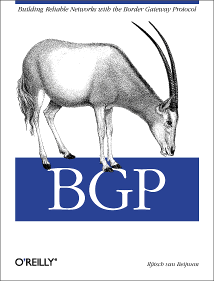
|

|

|
|
Home ·
BGP Expert Test ·
What is BGP? ·
BGP Vendors ·
Links ·
Archives ·
Books ·
My New BGP Book | ||
 (advertisement)
(advertisement)
| ||
|
Spoofer project (posted 2005-05-06)
The MIT Advanced Network Architecture Group runs a Spoofer project. You can view the results and/or download a client in order to participate. The goal of this research project is to determine to what degree hosts connected to the internet can spoof source addresses in outgoing packets. The problem with spoofing is that it can be used to hide the true origin of malicious packets that are used in denial of service (DoS) or distributed denial of service (DDoS) attacks. The current wisdom was/is that DDoSers have such an easy time launching their attacks from compromised hosts ("zombies") under their control, that spoofing isn't worth the trouble these days. (And NATs may rewrite the spoofed address into a non-spoofed address.) Unfortunately, there is little public information about the (D)DoS problem, but anecdotal evidence suggests that most DDoS attacks indeed use real addresses, but there is still a class of attacks that uses spoofed addresses. Note that the trouble with spoofing is not just that the source remains hidden, but also that it's impossible to filter out the packets based on source address. Some people argue that the number of sources is so large that this doesn't matter, but I'm not convinced by this argument. Anyway, it's interesting to see that many networks don't allow outgoing packets with spoofed sources, but there is also a large class of networks that allows them. And it's not entirely a binary thing: some networks filter, but not with 100% success. It's interesting to note that as of Service Pack 2 Windows XP no longer allows programs to send spoofed packets. (But taking part in the Spoofer project is still encouraged for WinXPSP2 users because it shows important data points.)
|
